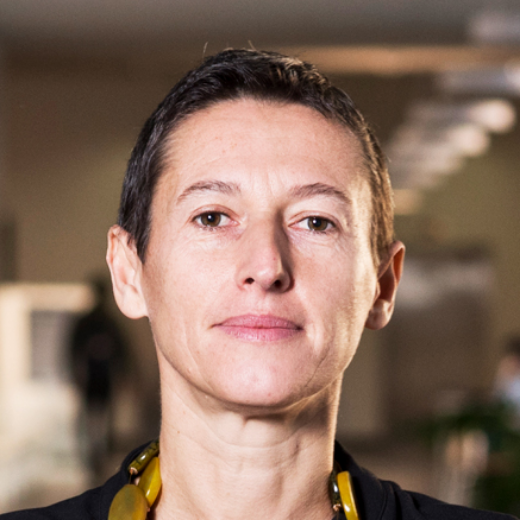Professoresse e Professori associati di ruolo | Human computer interaction
Rosella Gennari

Short bio
At the Faculty of Engineering of the Free University of Bozen-Bolzano, Gennari is an Associate Professor in Computer Science for Human-Computer Interaction (HCI), with a focus on: (1) Interaction Design and Computing/AI, especially with physical and digital (phygital) artefacts; (2) Interaction Design and Children; (3) Interaction Design and Technology-Enhanced Learning (TEL). She obtained her Ph.D. in Computer Science in 2002 on Automated Reasoning, Amsterdam University. Gennari was post-doc, with the ERCIM “Alain Bensoussan” fellowship for talented young researchers, CWI, Amsterdam, in 2002, then at FBK-irst, Trento, in 2003. She has co-authored more than 100 international peer-reviewed papers. She is also Editorial Board Member of the Journal of Child Computer Interaction, Elsevier (Q1), committee member of conferences in HCI, and she is regularly invited to review articles for top HCI conferences and journals. Gennari has authored and managed several projects, e.g., the FP7-EU TERENCE (2010-2013) research project, for which she was Scientific & Technological Coordinator of the entire Consortium, WP Leader, and Principal Investigator. She has institutional responsibilities at the Faculty of Engineering, e.g., currently, she serves in its Third-Mission Board for schools and public engagement, and she is Head of the Research Unit "Human-Centred Intelligent Systems".
Corsi
Elementi di Programmazione
42611 · INF/01 · Corso di laurea professionalizzante in Tecnologie del Legno · EN
Fondamenti di Programmazione I
42426A · INF/01 · Corso di laurea in Ingegneria Elettronica e dei Sistemi ciberfisici · EN
Interaction and empathy design
95206 · Corso di Dottorato di ricerca in Experimental Research through Design, Art and Technologies · EN
Laboratorio di Elementi di Programmazione
42612 · Corso di laurea professionalizzante in Tecnologie del Legno · EN
User Research\
71079 · INF/01 · Corso di Dottorato di ricerca in Scienze e Tecnologie informatiche · EN
Leggi di più su Rosella Gennari
Più vicini alle materie scientifiche con la unibz STEM School
Rivitalizzazione degli spazi pubblici a Cavalese con la Steam School
Materie STEM per le superiori. Al via oggi la “scuola” di unibz
Macroaree di ricerca
Research Unit/Macroarea: Human-Centred Intelligent Systems.
Main research area: Human-Computer Interaction, with a focus on:
(1) Interaction Design and Computing/AI, especially with physical artefacts;
(2) Interaction Design and Children;
(3) Interaction Design and Technology-Enhanced Learning (TEL).